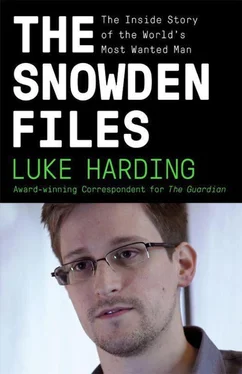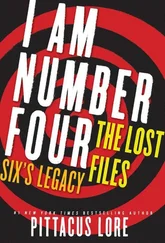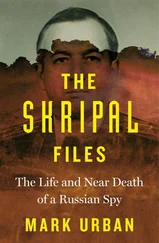The administration then wrote itself more legal cover in the hotly contested FISA Amendments Act (FAA). The FAA legalised and blessed any communications interception between an American and a foreigner. The foreigner did not have to be a terrorist suspect: he merely had to be ‘reasonably’ suspected of having foreign intelligence value. Nor did he even have to be actually overseas: he merely had to be ‘reasonably’ suspected of being overseas during the time of interception. Approvals came from the FISA court in bulk, annually.
In one of the most important provisions of the bill, the FAA granted explicit legal immunity to any telecommunications firm that participated in the bulk surveillance. The immunity was both retroactive and prospective. Essentially, no private-sector partner of the NSA’s would ever face criminal charges or financial damages.
The FAA was passed in mid-2008, the thick of presidential election season. It was a tremendous success for the NSA. What had begun as a lawless secret, controlled entirely by the executive branch, had now won the explicit approval of Congress, many of whose members little understood its significance. There was now a new term in the NSA lexicon: ‘702’, a reference to the legal text of FISA that the FAA changed, which would now be a wellspring for much of the NSA’s overseas and ostensibly terrorism-related collection.
Civil libertarians rued a fight they bitterly contested and had now lost. Bulk collection of communications on a massive scale would follow, warned the ACLU, and some of it would inevitably be American, all without individual suspicion or a way to adequately challenge its occurrence. It sounded like the General Warrants issued by the British colonial authorities – the very unreasonable searches and seizures that had provoked the American Revolution and the constitution itself.
In the House of Representatives, where the FAA was passed by a 293–129 margin in June, the overwhelming majority of dissenting votes were Democrats. But the Democrats on the intelligence committee tended to vote for it. Among them were committee veteran Jane Harman and her predecessor, now the House speaker, Nancy Pelosi. It seemed she had overcome her earlier reservations.
In the Senate, the bill passed by a comfortable 69–28 margin. All 29 dissenters were Democrats. But what was notable were Democrats aligning with the NSA. One was Dianne Feinstein, who would become the intelligence committee chairwoman the following year. Another was Jay Rockefeller, who held the position at the time – and who had denounced the same surveillance activities when the Times exposed them.
A third was the liberal hope of the early 21st century, a first-term senator from Illinois and constitutional law professor. Barack Obama, in a 2007 stump speech for his nascent presidential campaign, had pledged, ‘No more illegal wiretapping of American citizens. No more National Security Letters to spy on American citizens who are not suspected of a crime. No more tracking citizens who do no more than protest a misguided war. No more ignoring the law when it is inconvenient.’
Obama, the Democratic nomination in sight, and from there the presidency, voted for the FAA on 9 July 2008.
With the passage of the FAA, political controversy over warrantless surveillance became marginal, the preoccupation of those already invested in one outcome or another. Periodically throughout the Obama administration, surveillance votes would occur – as with the renewal of the Patriot Act and the FAA itself – but relatively few paid attention. Obama paid no political price for any of the bulk surveillance activities he presided over.
One reason for that was that the FAA vote largely returned the veil of secrecy to the NSA’s bulk collection activities. While a few obsessives knew the name STELLAR WIND, there was no public proof that the NSA was secretly hoarding the phone metadata of every American. There was no public proof that the NSA had entered into sweeping arrangements with every significant internet service provider, under a program that was getting off the ground called PRISM.
There was, however, a warning. In 2011, in an interview with WIRED reporter Spencer Ackerman – who would soon become the Guardian ’s national security editor – and in a floor speech shortly before a critical vote on the Patriot Act, Senator Ron Wyden, an Oregon Democrat who sat on the intelligence committee, obliquely said that the government had a secret interpretation of the Patriot Act that was so different from what the text of the law said that it amounted to a new law – one that Congress had not voted to approve.
‘We’re getting to a gap between what the public thinks the law says and what the American government secretly thinks the law says,’ Wyden said. ‘When you’ve got that kind of a gap, you’re going to have a problem on your hands.’ If the American people saw the discrepancy, he added, they would be astonished – and horrified. But Wyden, sworn to protect classified information, refused to say exactly what he meant.
Despite all the suspicions and the arcane controversies, the developing facts about the country’s biggest and most intrusive domestic and international surveillance programs were thus kept from the American public in whose name they were being carried out. When Edward Snowden got on a plane for Hong Kong in 2013, the material he held on his laptops was highly explosive.
Mira Hotel, Nathan Road, Hong Kong
Tuesday 4 June 2013
MACASKILL: ‘What do you think is going to happen to you?’
SNOWDEN: ‘Nothing good.’
Ewen MacAskill was no stranger to Hong Kong. But during his trips to the then British colony in the early 1980s, his name had been ‘Yuan Mai’. This was the official Chinese byline he used while writing for the China Daily . Back then, the young MacAskill lived in Beijing. He was, in theory at least, a member of the Chinese communist party’s propaganda unit. In reality, he was on secondment from the respected Scotsman newspaper in Edinburgh. He had spotted an advert there for an English-speaking journalist.
Working for the China Daily was less stressful than it might have appeared, since all mention of politics was taboo. MacAskill’s role was to mentor Chinese journalists. The hope was they would produce a modern English-language newspaper. There were charming tales to be told along the way. As well as obligatory stories on grain production in Tibet, MacAskill interviewed the brother of China’s last emperor, and the first climber to reach the summit of Mount Everest from the Chinese face. He wrote about a Chinese nuclear physicist who later in life – maybe as repentance – designed playground rides for kids.
‘People were still wearing Mao suits and riding bikes,’ MacAskill recalls. It was an exotic world for a young Scot who had grown up in a tenement block in chilly Glasgow.
MacAskill had become one of the Guardian ’s most respected journalists. Britain’s Fleet Street trade may have been notorious for phone hacking, blagging, subterfuge and other acts of petty treachery, but MacAskill was one of the straight guys. In a highly regarded career he had never done anything devious. He was one of few to whom Humbert Wolfe’s epigram didn’t apply:
One cannot hope to bribe or twist
Thank God! the British journalist.
But, seeing what the man will do
Unbribed, there’s no occasion to.
MacAskill’s integrity perhaps owed something to his Scots parents, who belonged to the Free Presbyterian Church. The small sectarian group took an uncompromising view on sin. Family summers in the Hebridean island of Harris, a diehard Calvinist refuge, reinforced the evangelical creed. A working-class boy in the late 1950s, MacAskill learned that Sundays were for church. Dancing, music and fornication were forbidden. Lying was, of course, wrong.
Читать дальше












